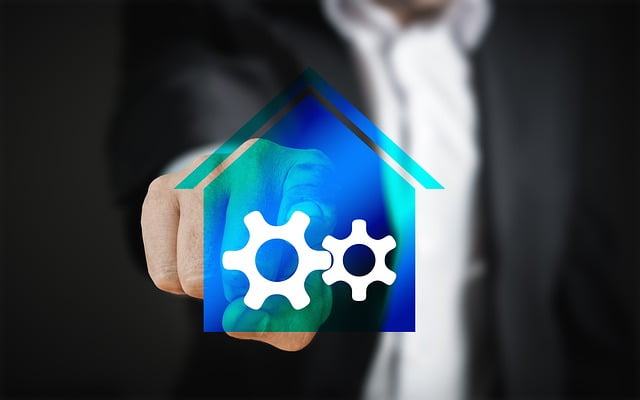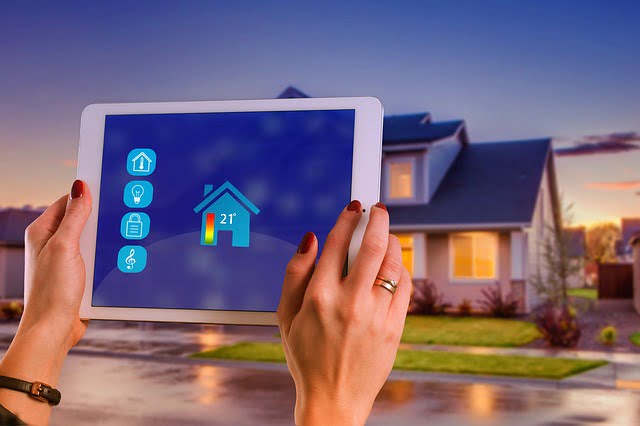Smart homes; something a lot of people would have dismissed as a work of fiction a decade back, are now a reality. They have changed our conventional way of living and opened us up to a whole new level of engagement (with respect to technology) within the confines of our homes.
With the rapid growth in adoption of technology, industries had no choice but to evolve and pick up their pace when it comes to looking out for the latest trends in technology. This revolutionized several industries, leading the Insurance Industry (a somewhat conventional industry) to quickly adapt to this new in-home experience. With the exposure of such advancements, the term ‘InsureTech’ surfaced which according to Marshall Hargrave; a seasoned contributor at Investopedia, means; how technology will complement Insurance Industry and the way it operates.
The Transformation

As the trends have become mainstream, insurers have gotten more and more vulnerable. People have started adopting smart devices into their homes as this technology gave consumers a consistent value addition on their fingertips, giving a massive window of opportunity to traditional home insurance providers. Consumers are now able to interact and keep a check at their homes from anywhere in the world. Smart Home Devices are a lifesaver; from telling your fridge to add butter in your shopping list to commanding the coffee machine to make a cup of coffee in the morning, it’s all possible. These robust AI-driven VPAs of Amazon, Google and Apple have made natural interaction of people and machines extremely humane.
One of the biggest proofs of concept that smart homes have is the area of home maintenance/security. A notification on your smartphone about a gas leak can prevent from a bigger disruption, a smart-lock synced with the home-security system which you can monitor and control from anywhere – doesn’t get more convenient than that. Home safety and security became the most relevant category for home insurance carriers to find opportunities and make homes safer.
The quick adaption of Smart devices has proved to be a silver bullet, with both homeowners and insurers enjoying the privilege that come with connected homes. With an alerts system right on your smartphone, the technology is serving homeowners convenience and safety, resulting in a reduction in overall claims that insurers have to bear. Home insurance companies are certainly able to reduce exposure to loss by having homeowners making effective use of Smart home devices. Installing preventative and predictive technology like the ones discussed above, also earns homeowners the benefit of receiving lower home insurance rates. This incentive has led many families to modify their homes with latest technology, which also ultimately increases the chances of getting insurance discounts. The eligibility of receiving discounts has further added a stage of making comparisons between insurance companies for whom smart phones are the most valuable plugs, extremely crucial. Researchers at an “InsureTech” based firm have carefully compiled a guide for the public to understand and compare the Home Insurance market.
How Home Insurance Industry can leverage Smart Data
Considering an internal perspective, insurers are able to leverage data and gain purposeful insights. Since the insurance industry relies on data risk insights, digital transformation proved to be a game changer. Internet of Things has become an imperative part of driving businesses to success, since it provides insights from external sources of data. Few of the major examples include telematics and sensor-based technologies such as Smart Thermostat, Fire alarms and Smart Security Systems among others. This data-driven relationship between home insurer and consumer has created a more active bond between the two.
Deep risk insights are also being used to develop better and more innovative approaches while underwriting risks and predicting losses. Information gathered from different sensors and sources allows more preventative models which facilitates loss mitigation. They provide real-time readings and date and time stamps on data points including motion, temperature, moisture etc. This proactivity, which comes with connected homes, is a win-win for both the insurer and consumer. As it is easy to minimize damage with early detection using smart features, claims costs also reduce, ultimately lowering premiums.
An insurer can also provide several value added services with the help of Smart Data. Options like building a Home Management platform that offers certified service provides such as plumbers, electricians etc. Remote Monitoring and Assistance to households, and Emergency solutions to prevent or mitigate insured risks can seamlessly be integrated with accessibility of data gathered from smart homes.
However, there are some concerns…
With the increased use of Smart Devices and advanced technology, IEEE had raised questions and put forward issues, including but not limited to privacy and data confidentiality. There is a massive amount of real-time readily available data on the Cloud that has intensified the concern over people being monitored. Although people willingly provide their data in order to get a service in return, nevertheless, there are several security risks involved with constantly being connected to the internet, which need a thorough and strict protection policy. Insurance companies have to be ahead with assigning strong budgets to handle possible cyber-attacks and eliminate unapproved breach of privacy.
What lies ahead…?
As futuristic as it sounds, these practices are continuously evolving the way we live. Insurance companies are walking a tightrope between adopting newer technological trends and providing incentives to homeowners and fulfill their smart home needs under strict security protocols. InsureTech has certainly bridged the gap between homeowner and insurer, making it a breakthrough innovation which needs to be incorporated in future insurance strategies. The unique value proposition InsureTech brings can’t be ignored.

